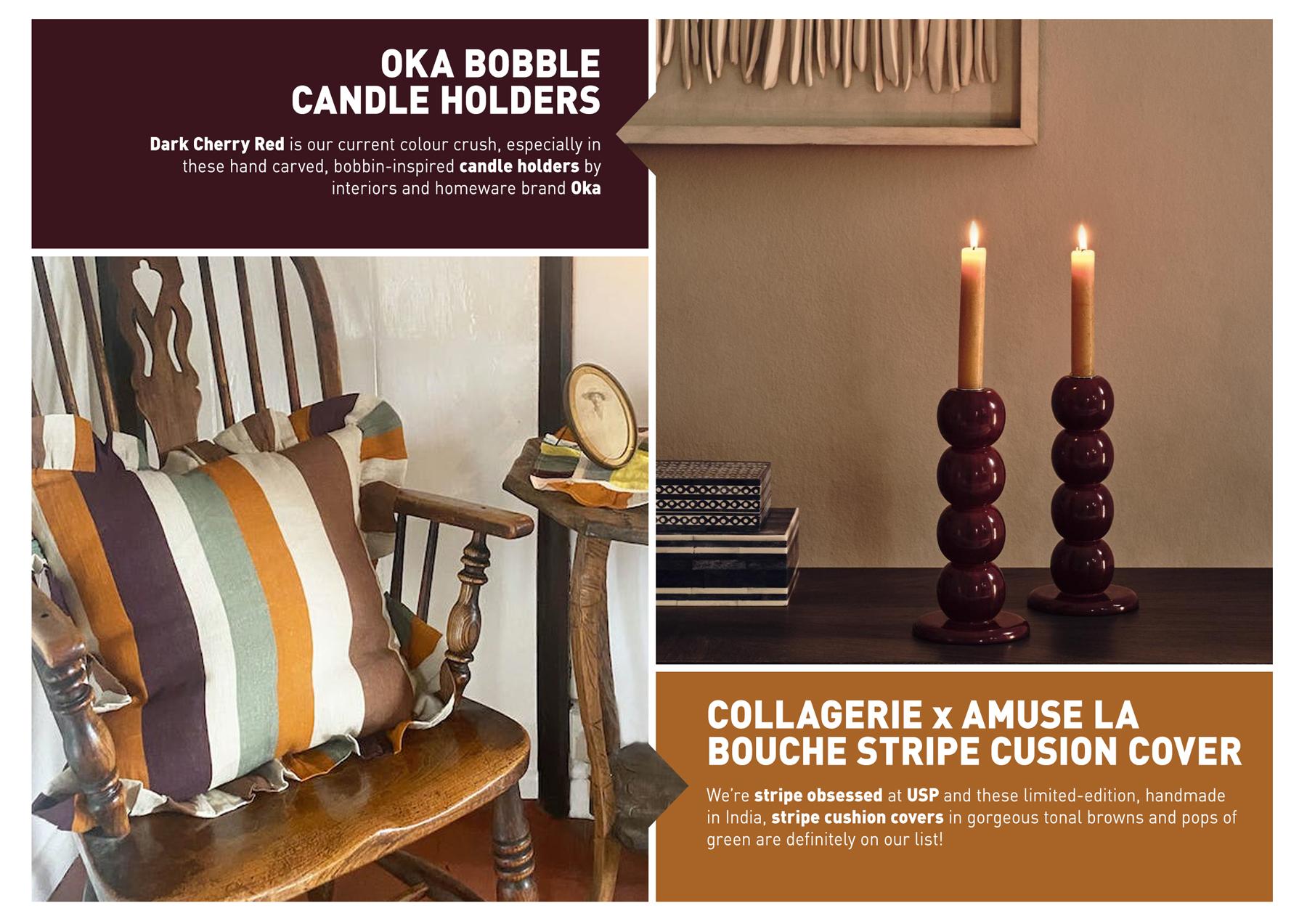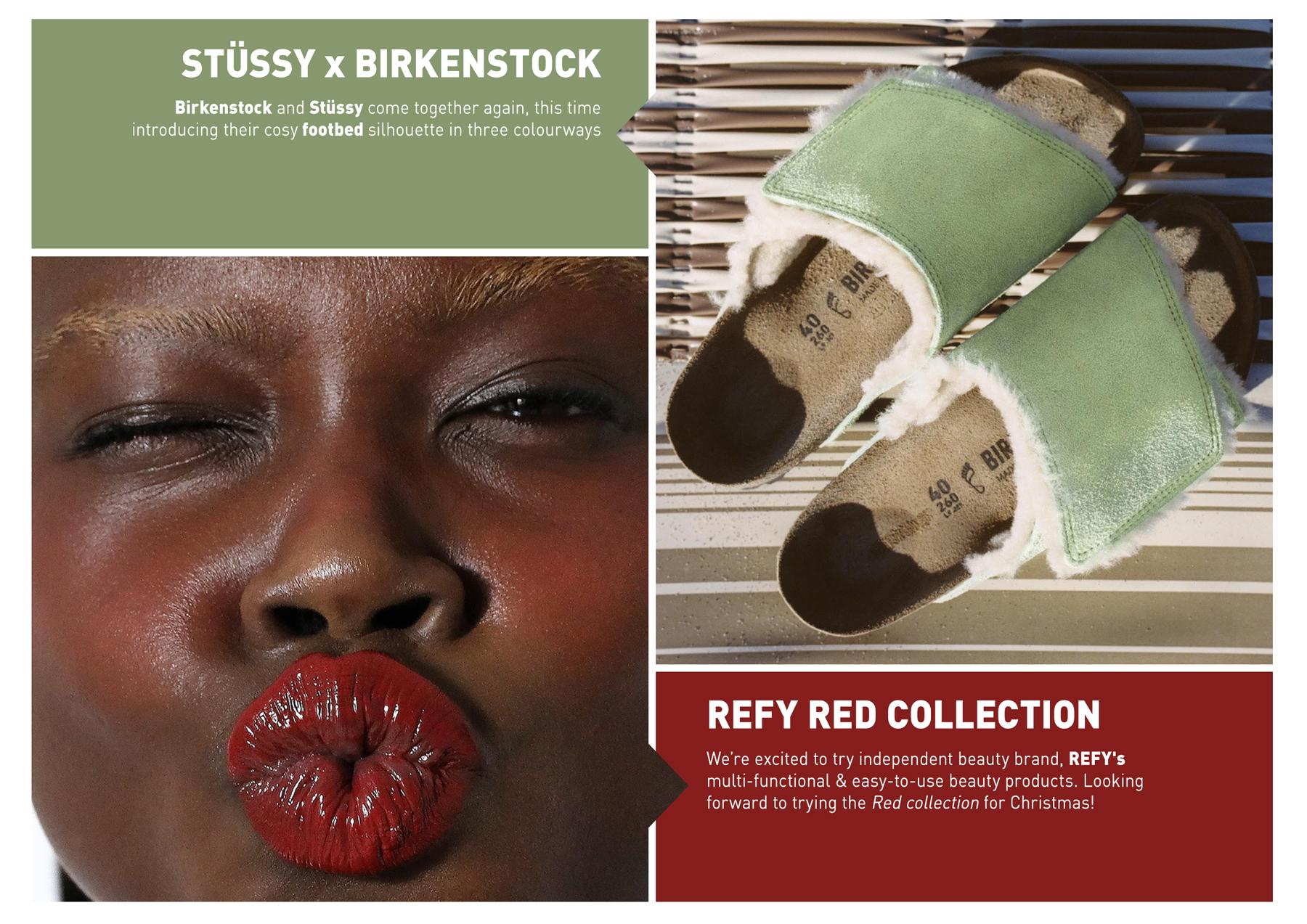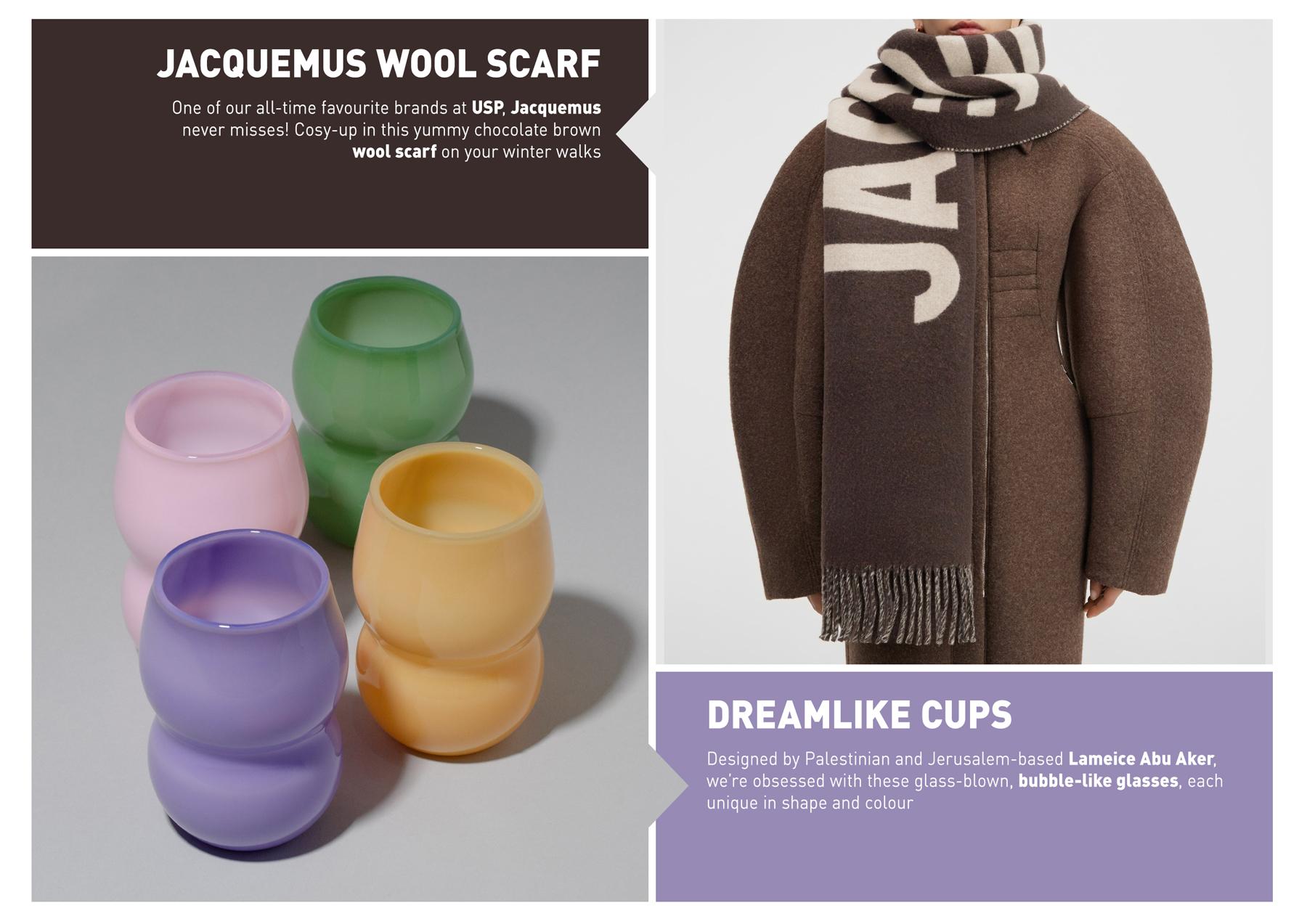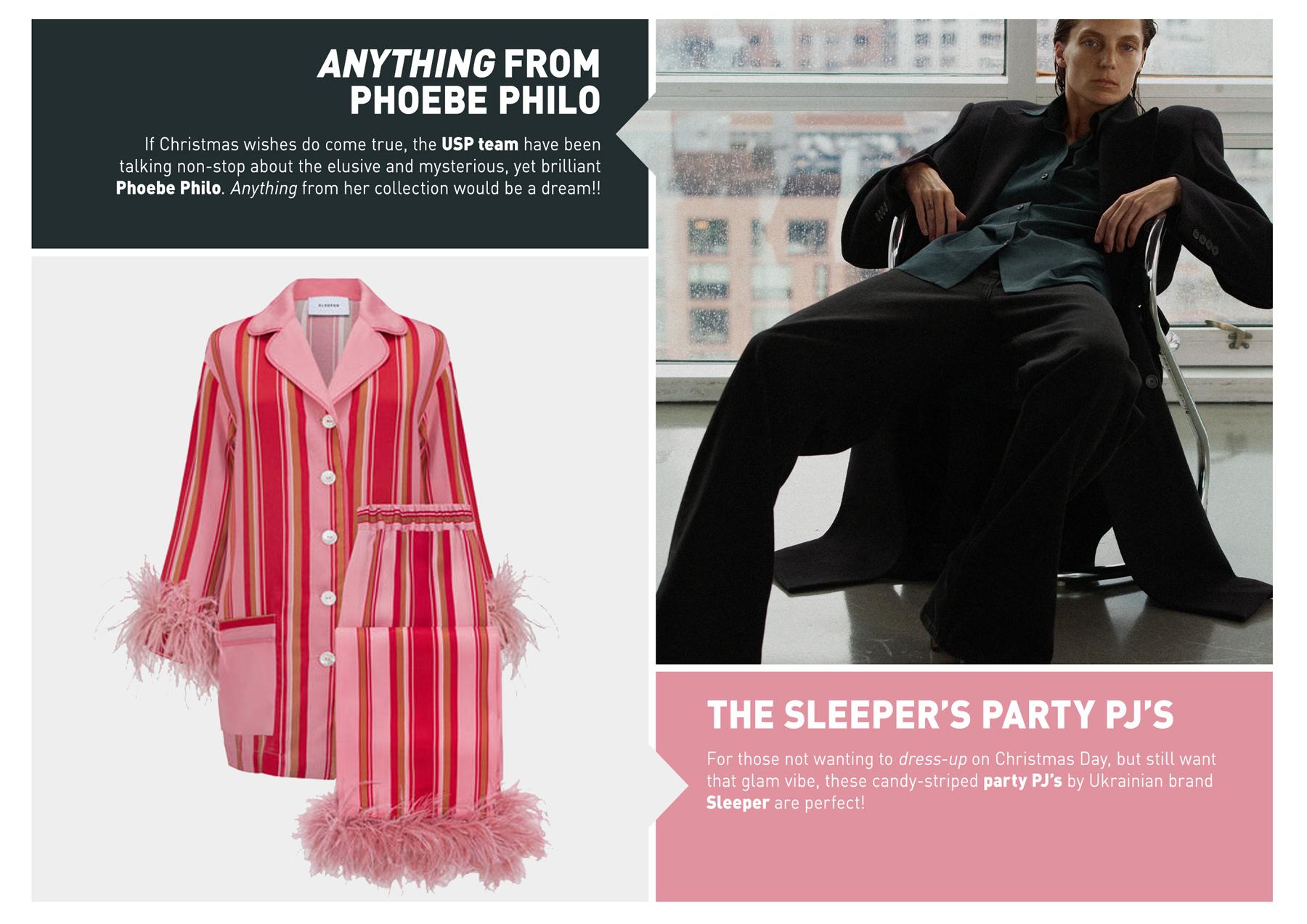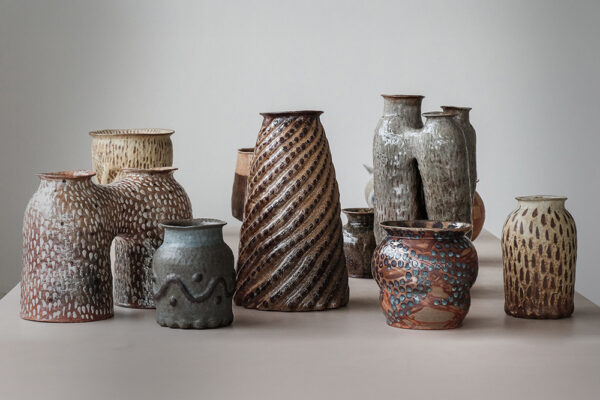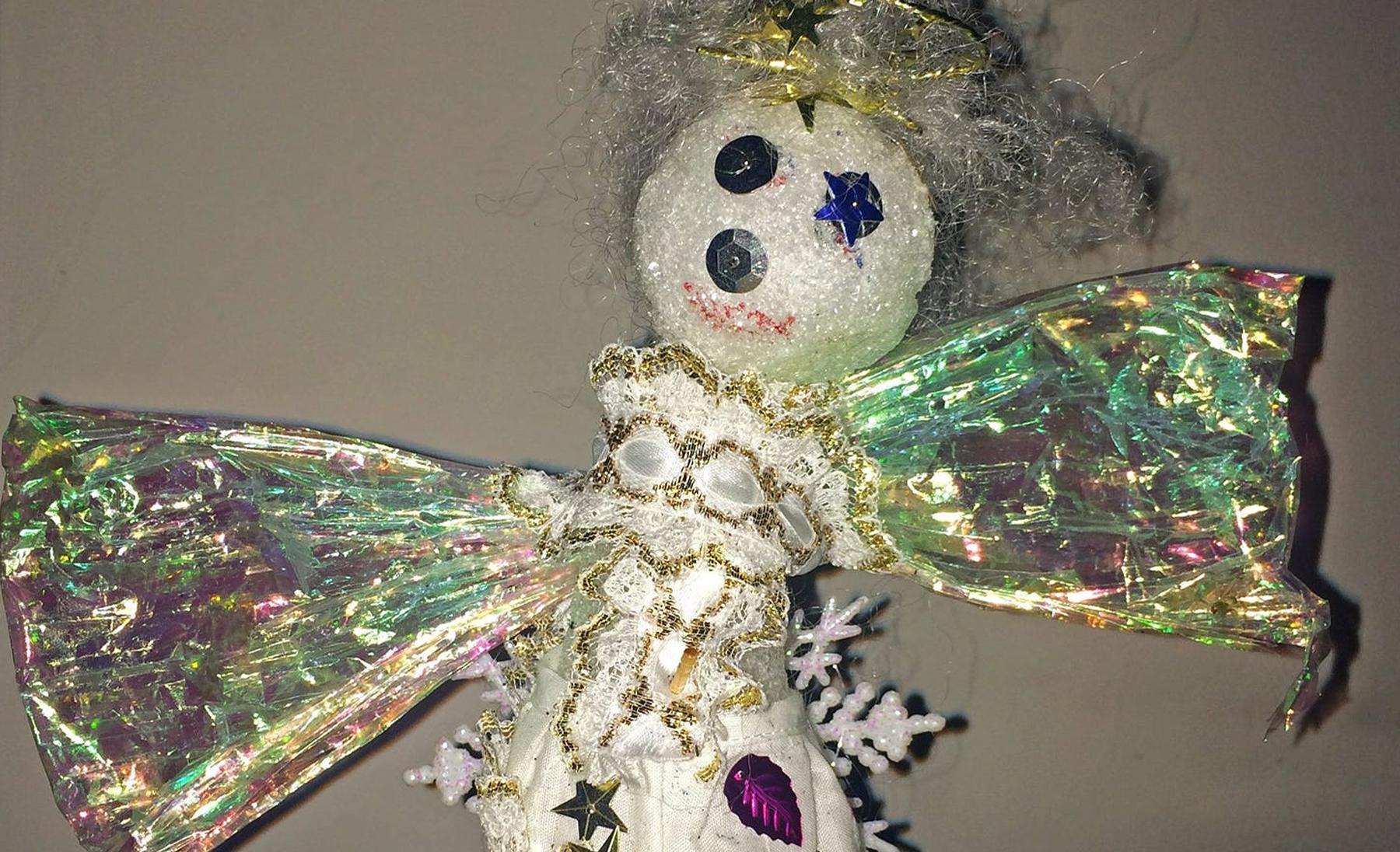
I don’t generally like rules and brought my kids up saying “the rules are there are no rules”, there were rules of course, I’m not a psychopath, but mostly I preferred to make the rules up as I went along, rather than inflict seemingly pointless morals on them.
When it comes to Christmas however, I do have a few strict rules; no decorations or festive tunes until December 1st, and no tree until two weeks before the big day. The last one is purely practical, as we all know real trees will wither and drop needles after two weeks. This year however, I’m in the middle of a house renovation so my only rocking around the Christmas tree will be in the USP studio. So we have gone in early this year and the office is a joyous mish-mash of brightly coloured decorations, a pink tree and hundreds of fairy lights.
As we decorated we chatted about our festive family traditions and came to the conclusion that it’s the nostalgic decorations that come out every year that mean the most. The strange star with huge amounts of glitter made at nursery, the weird nativity scene bought from a Christmas shop in July, or the bright blue tinsel that you knew your mum would take off the tree as soon as you were in bed. These often tacky, home-made items, dragged down from the loft, are a reminder of past times, family gatherings and meaningful moments, and sum-up what Christmas is all about.
Social media has elevated the desire for perfect decor for every occasion to new levels, as consumers are bombarded with images of Kardashianesque balloon arches, grazing tables, super-size floral displays, themed parties and tablescapes. The integration of shopping features directly into Snapchat, Instagram and TikTok have made it easier than ever for users to engage with new looks and instantly purchase products to ‘get the look’.
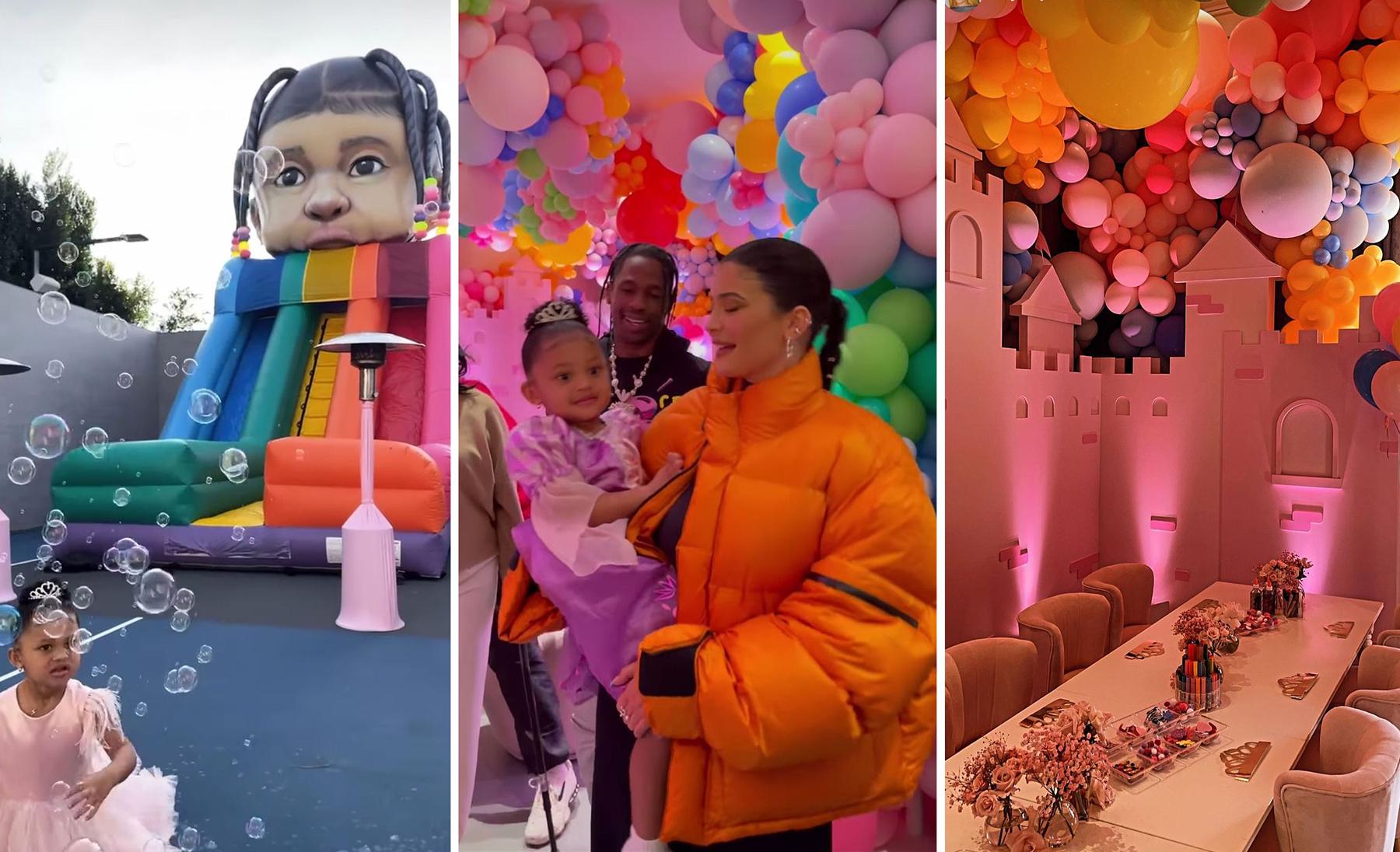
This instant access to new trends is democratising the way consumers shop by making them accessible to everyone, but alternately the banal cookie cutter style of some social media influencers and celebrities seems to be removing the creativity from festive occasions. Generic colour schemes, bland decorations and not a wonky hand-made donkey in sight, is this ‘aspirational’ approach to the holidays glorifying excess and consumerism and creating feelings of insecurity and jealousy?
There is also pressure when it comes to gift giving, whether it’s to impress or not disappoint, many of us feel we have to choose the perfect gifts whatever the cost. Presents must be bigger and better and we must out-do ourselves year on year, particularly if we are parents. Research has shown that spending more doesn’t guarantee higher levels of appreciation, yet as a teenager there is nothing more disappointing than getting the wrong Adidas Gazelle trainers or a fake version of the Longchamp bag that is trending on TikTok.
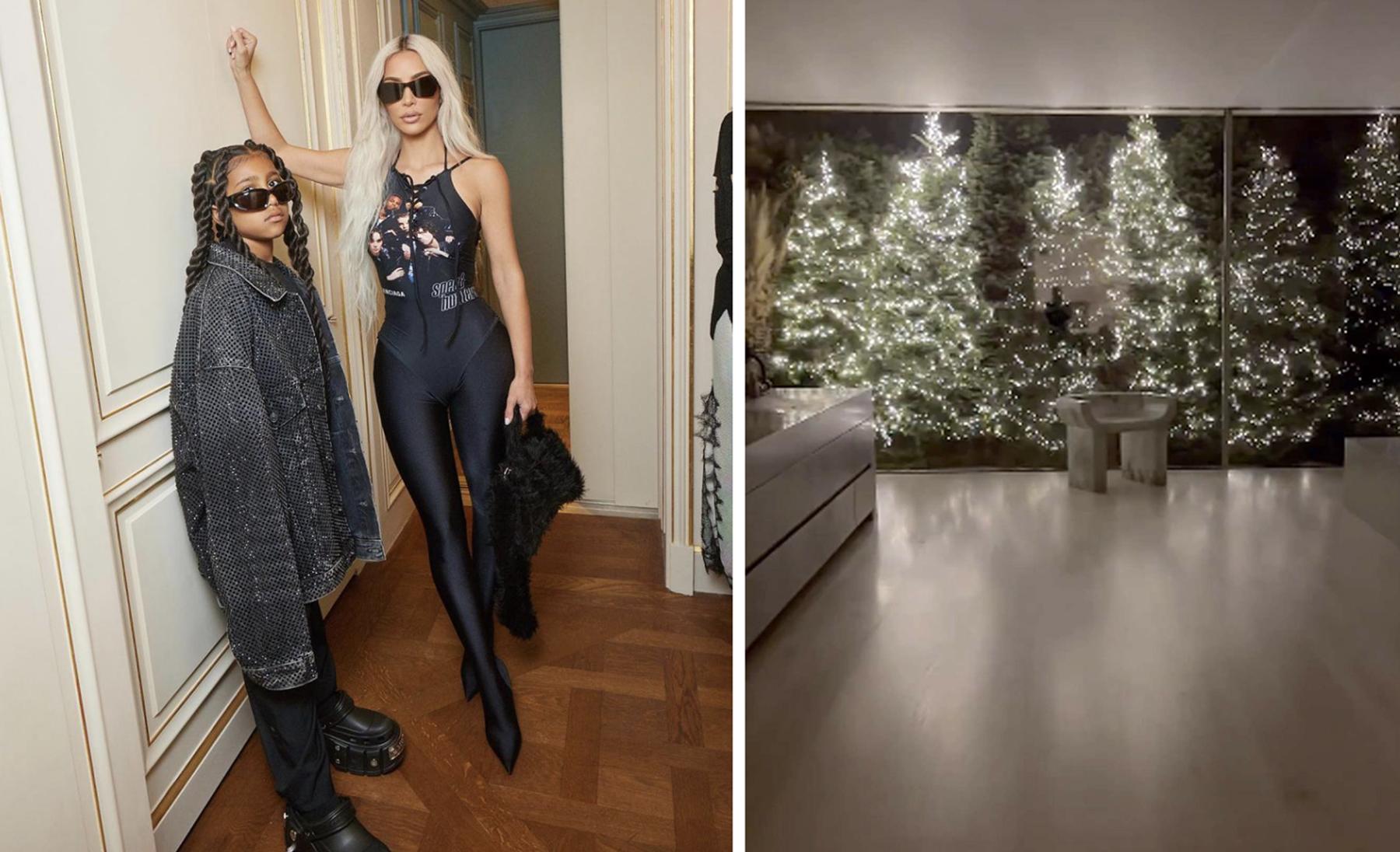
Does all this excess make us really happy, or would we be better off with the Argos catalogue and the Morecambe and Wise show (only older British readers will understand this reference)!!
The latest episode of The Kardashian’s shows North telling Kim; “Dad is the best. He has it all figured out. He doesn’t have a nanny, he doesn’t have a chef, he doesn’t have security. He lives in an apartment.Why don’t you have an apartment? I can’t believe we don’t have an apartment.”
One wonders what North thinks of Grandma Kris’ or Auntie Kylie’s OTT holiday decor. Does she appreciate the huge amounts of money spent on their lavish Christmas concepts or would she really prefer to be rolling around in glitter, brandishing a glue gun?
As our homes have an extension of our fashion choices and a way to illustrate our design aesthetic, more and more fashion brands have tapped into the lifestyle market. The launch of Zara Home and H&M Home heralded a new era of trend orientated, affordable homeware that appeals to Gen Z and millennials looking for ‘Instagrammable‘ home furnishings. The pandemic accelerated this desire to view our homes as curated spaces, and we saw any number of ‘#cores’ emerge on TikTok; #coastalgrandma, #cottagecore and even #cluttercore (every mother’s nightmare) – brought together fashion and lifestyle aesthetics in a relatable, fun way.
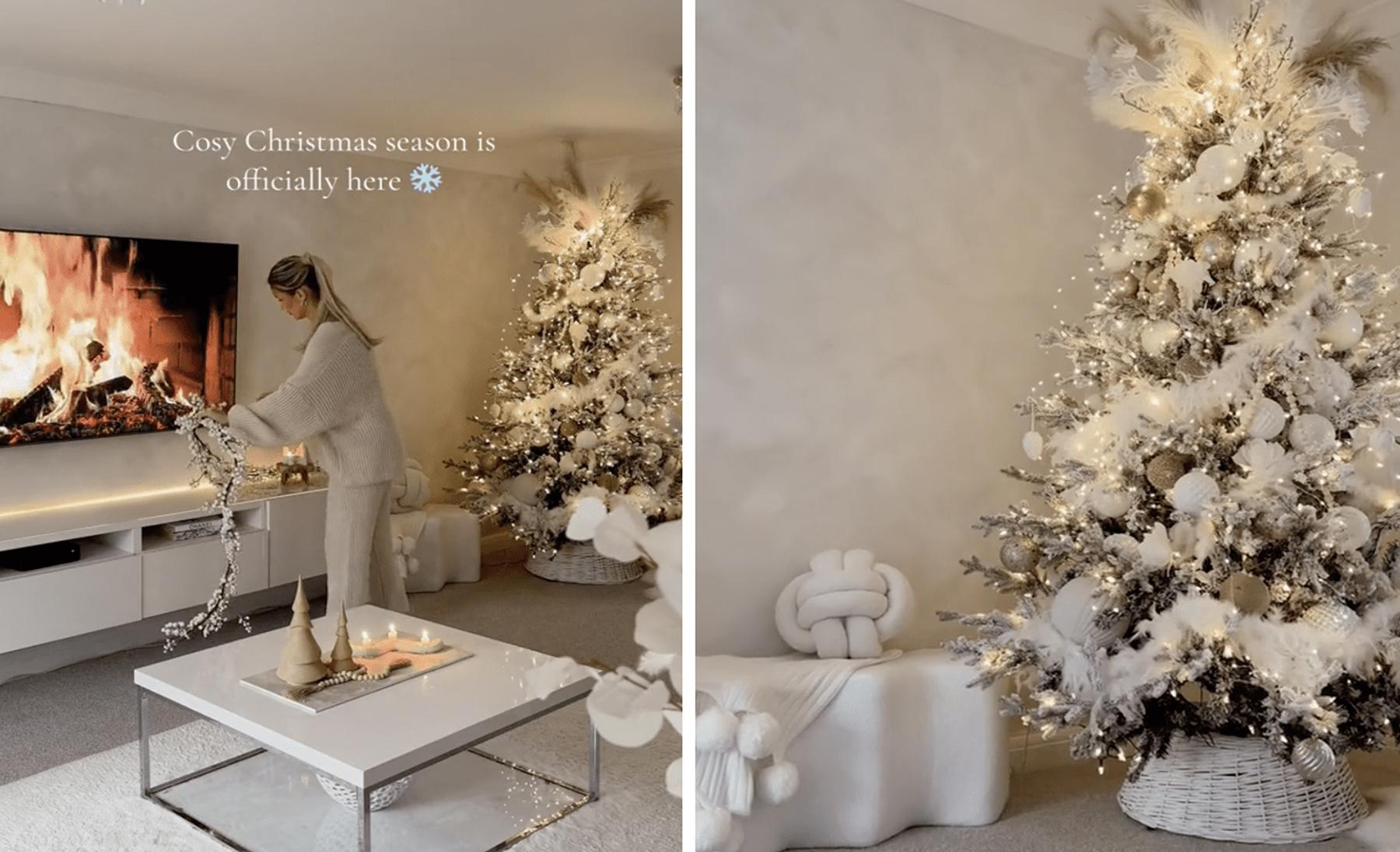
Brittany Thomas has 11k followers on TikTok and her Christmas reveal of her rotating tree amassed 2.5 million views. She has also created tutorials on how to create a bauble door arch and the perfect tree ribbons, among others. Her home is a homage to grey and cream perfection, and she works with brands such as Matalan to illustrate how to create the looks she loves in an affordable way. Similarly, UK national treasure, Stacey Solomon has 5.8m followers on Instagram and loves nothing more than a DIY project at Pickle Cottage. Despite the fact she has five children and numerous TV presenting jobs, she managed to rustle-up ‘The Nutcracker Christmas door 2023’, complete with a giant hand-painted baubles, life-size Nutcrackers and a huge festive door arch.

Aspirational or unattainable you decide?
The recent Business of Fashion State of Fashion report looks at how fashion companies will face economic headwinds, technology shifts, and an evolving competitive landscape in 2024.
“In a backdrop of subdued economic growth, persistent inflation, and weak consumer confidence, businesses will be challenged to identify pockets of value and unlock new drivers of performance.”
They also highlight the importance of influencers, saying…
“It’s time for brand marketers to update their influencer playbooks, as a new guard of creative personalities wins fans. Working with opinion leaders in 2024 will require a different type of partnership, an emphasis on video, and a willingness to loosen the reins on creative control.”
So it seems emotional connection does matter, but in my opinion it has to be the right kind of emotional connection. Authentic, heartfelt and transparent, and a move away from performance marketing and copy-cat styles to create meaningful consumer relationships and longterm brand identities.
Time will tell if there will be a backlash against the beige perfectionism of influencers and a move towards a more realistic, unique approach to life and style – my instinct tells there might be.

The TikTok hashtag #dinnerparty has over 1.2 billion views, while #dinnerpartydecor has 37 million views and a recent post on Planet Woo claims Gen Z dinner parties are “aspirational, inclusive, budgeted and mismatched. New age dinner parties are here and phones are allowed at the table.”
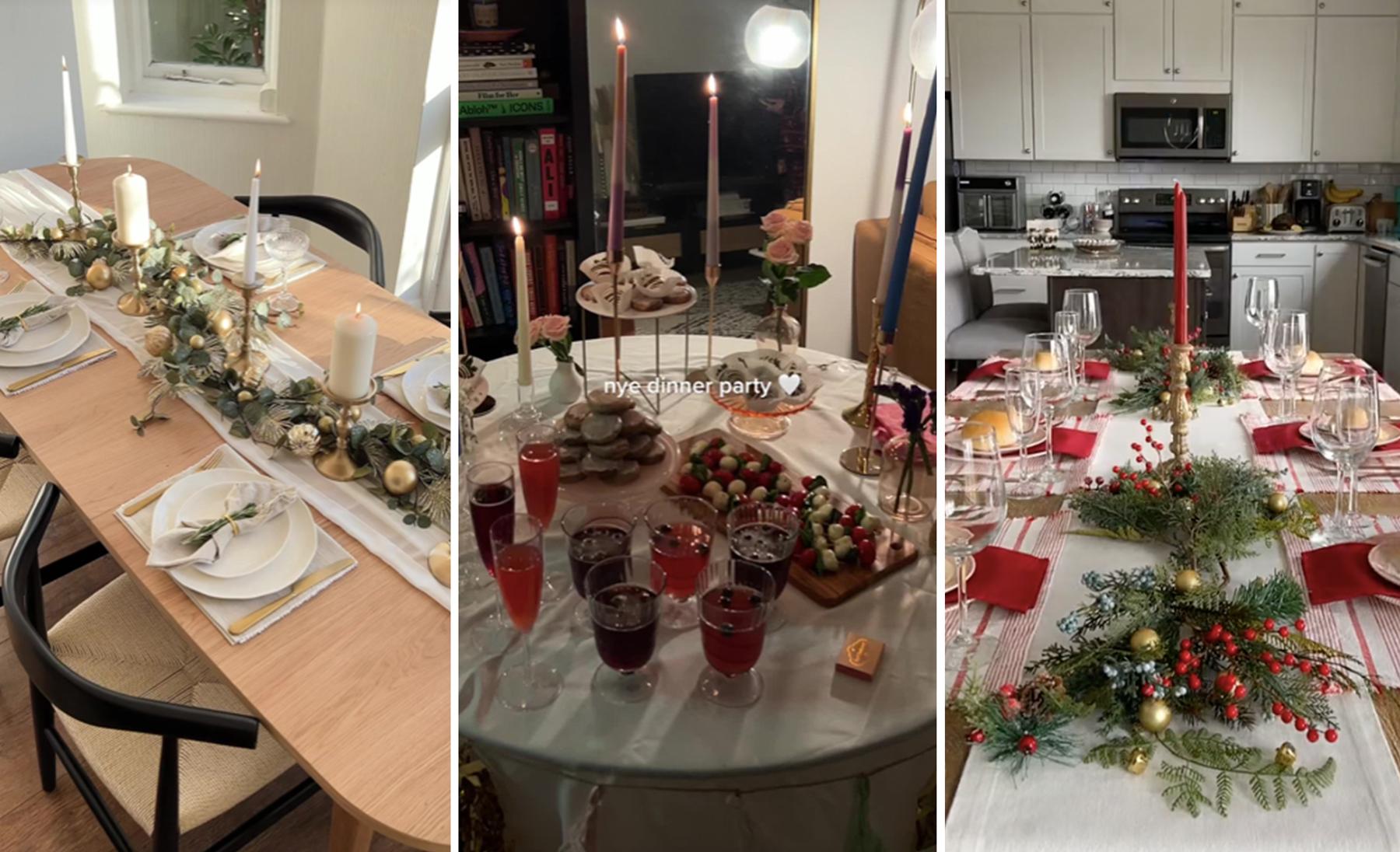
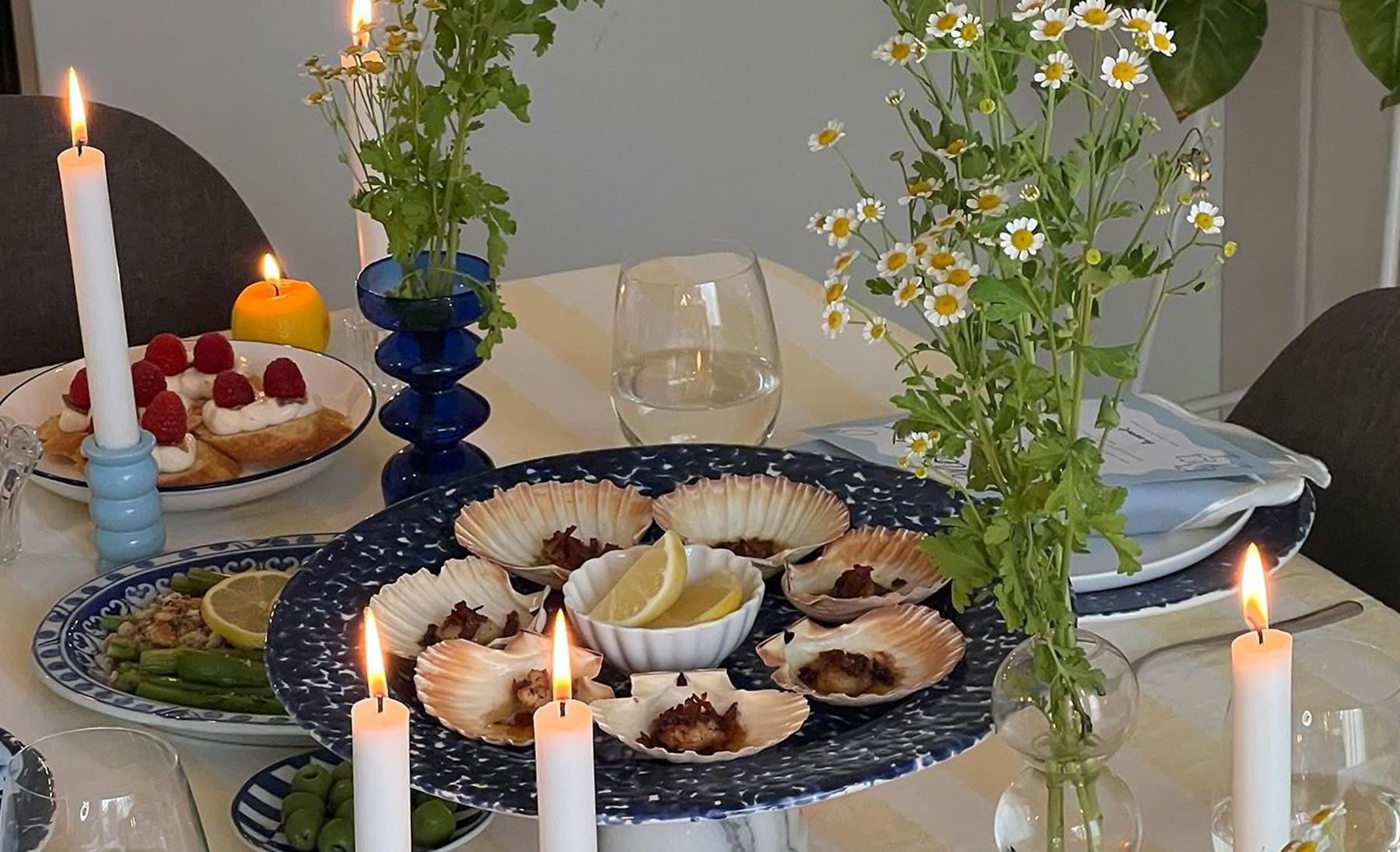
Just like the hand-made angel on the top of the tree, meaningful connections, and nostalgia are what celebrations are all about, the aesthetics should be purely personal and if you are in any doubt click the link to take a look at our favourite decor icon ‘Tinsel Man.’

Speaking of Christmas/Holiday trends, you can sign-up for our FREE Webinar on the 14th of December here and keep scrolling to see our USP Loves Christmas Gift Guide!…
